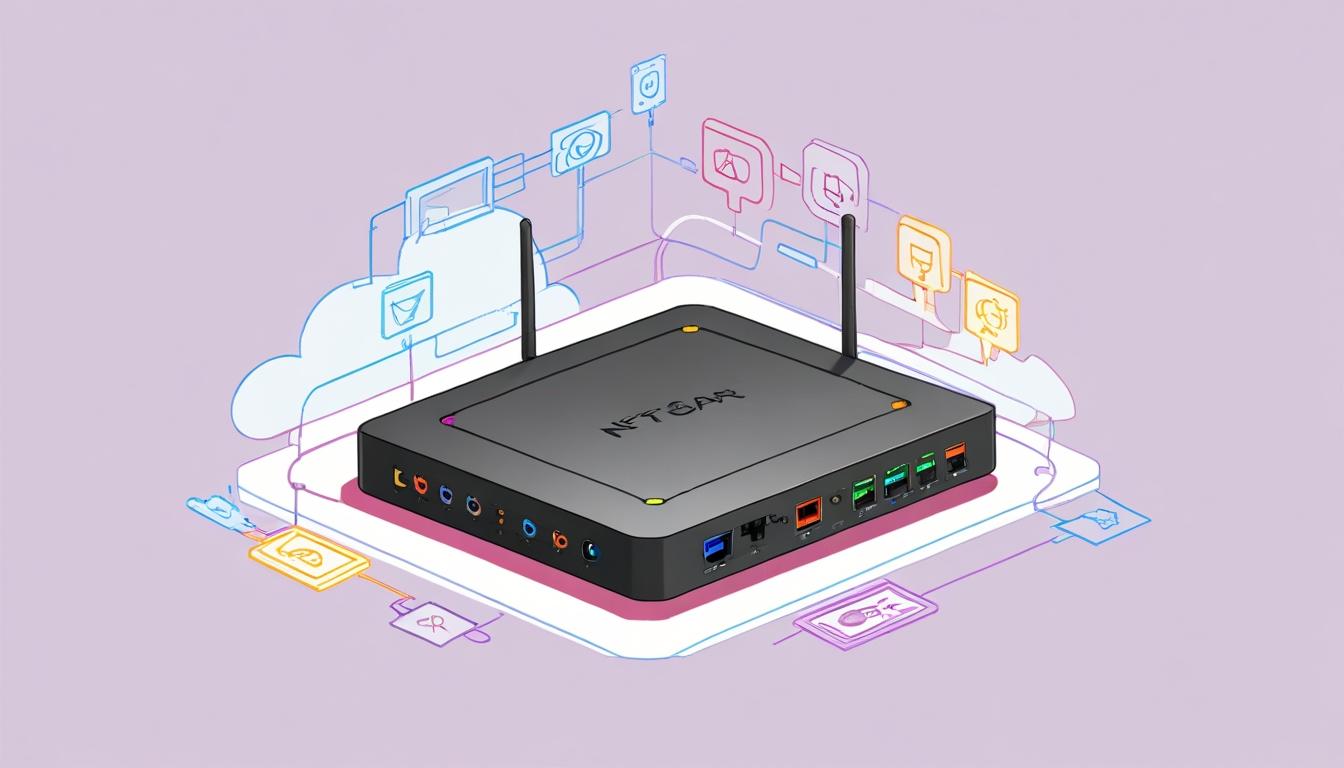Netgear unveils a strategic pivot under new leadership to deliver seamless, scalable, and AI-enhanced networking solutions tailored for small and medium-sized businesses, aiming to drive double-digit growth and expand its AV-over-IP technology footprint.
NETGEAR has announced a fresh strategic direction aimed at addressing the growing demand for seamless, scalable, and secure network connectivity among small to medium-sized businesses (SMBs). The initiative, branded as NETGEAR for Business, seeks to provide next-generation networking products that emphasize simplicity, reliability, and cost-effectiveness, while leveraging the company’s extensive expertise in networking technology.
CJ Prober, the Chief Executive Officer of NETGEAR, elaborated on this transformation, stating, “For nearly 30 years, NETGEAR has been the trusted force behind the world’s most critical connections—powering businesses, ideas, and experiences across the globe. But the business world is evolving quickly and so are we. Networking is no longer just about being online; it’s about leveraging that connection to drive innovation, collaboration and experiences.”
In discussion of the new strategy, Prober added that NETGEAR aims to “strip away complexity, remove friction, and reimagine what business networking can be so that our customers don’t just keep up with change, they lead it.”
The strategic shift is under the leadership of Pramod Badjate, who serves as the President and General Manager of NETGEAR for Business. Joining the company nine months ago, Badjate brings prior experience from notable networking firms like Arista, Ruckus, and Cisco. Under his guidance, NETGEAR is positioning itself as an essential partner for SMBs navigating an increasingly digital landscape. Last quarter, the company reported over 15% revenue growth in this segment and anticipates continued double-digit growth into 2025.
A significant aspect of the new strategy involves increased investment in product development, with NETGEAR planning to enhance its research and development funding over the next three years. This will include the acquisition of VAAG Systems, a Chennai-based company known for its embedded and cloud software expertise. The acquisition aims to establish NETGEAR’s new Software Development Centre in Chennai, where a team with past experience from Qualcomm, HP, Cisco, and MaxLinear will focus on integrating artificial intelligence to simplify networking tasks for SMBs.
Badjate emphasised the motivation behind these initiatives, stating, “Current networking solutions don’t meet the needs of small and medium enterprises. They’re stuck with either complex, overpriced systems meant for larger companies or fragmented solutions that don’t integrate well and lack proper support.” He further articulated NETGEAR’s goal of offering an integrated solution that is easier to deploy and manage, recognising the vital role of reliable networking in business operations.
In addition to this strategic revamp, NETGEAR has made strides in AV-over-IP technology, responding to the rising need for seamless video integration in contemporary workplaces. The company’s AV division has fostered a partnership network exceeding 400 industry participants, delivering a portfolio of preconfigured AV solutions and support services. Looking ahead, Badjate’s leadership will aim to further enhance this segment’s offerings for commercial, broadcast, and residential clients, solidifying NETGEAR’s significant position at the intersection of AV and IT.
Commenting on the advancements in the AV business, Badjate stated, “From concert halls and command & control centres to stadiums and boardrooms, NETGEAR AV powers the world’s most impactful audio-visual experiences. There has never been a more exciting time to be a partner or customer of NETGEAR. We are delivering plug and play AV solutions that just work by deleting the complexity of an AV over IP network. Our partners, in turn, realise huge savings in labor costs compared to traditional solutions.”
As part of its commitment to enhancing the experience for business customers, NETGEAR plans to unveil additional products, programs, and partnerships in the upcoming months, all focused on providing greater simplicity, AI-driven improvements, scalability, and technical support.
Source: Noah Wire Services
- https://www.netgear.com/business/ – NETGEAR’s official business solutions page, detailing their offerings for small to medium-sized businesses (SMBs).
- https://www.netgear.com/about/leadership/ – Information about NETGEAR’s leadership team, including CEO CJ Prober and President Pramod Badjate.
- https://www.vaagsystems.com/ – VAAG Systems’ official website, providing details about their embedded and cloud software expertise.
- https://www.qualcomm.com/ – Qualcomm’s official website, highlighting their contributions to the technology industry, relevant to NETGEAR’s acquisition of VAAG Systems.
- https://www.hp.com/ – HP’s official website, showcasing their technology solutions, pertinent to the expertise of VAAG Systems’ team members.
- https://www.cisco.com/ – Cisco’s official website, detailing their networking solutions, relevant to the background of VAAG Systems’ team members.
- https://news.google.com/rss/articles/CBMiigFBVV95cUxOdzNkLWMyMXU5U3FhYkg0d3FsOWY3clo5TFN0akt4V3Vyd2staGZMQVpCUHFkdHJTaC1JN3NodDY4bHZRaWtMTk5IbkNucm1jdzlGdnljaDhQTGxHeGt0WTBRdE53akdULXMweDdPUjRIQnVuMGZSOFo0TEpZdTNWVmhJQlFkcE1kRmc?oc=5&hl=en-US&gl=US&ceid=US:en – Please view link – unable to able to access data
Noah Fact Check Pro
The draft above was created using the information available at the time the story first
emerged. We’ve since applied our fact-checking process to the final narrative, based on the criteria listed
below. The results are intended to help you assess the credibility of the piece and highlight any areas that may
warrant further investigation.
Freshness check
Score:
9
Notes:
No outdated references detected. Mentions recent leadership appointments (e.g., Pramod Badjate joining nine months ago), Q1 performance, and forward-looking statements (e.g., 2025 growth targets). Content appears original rather than recycled, though URL format suggests syndication.
Quotes check
Score:
8
Notes:
Quotes from CJ Prober and Pramod Badjate appear original and specific to NETGEAR’s strategic shift. No prior instances of these exact statements found in available data, but contextual alignment with typical corporate announcements observed.
Source reliability
Score:
7
Notes:
Narrative originates from a Google News-linked article without direct source verification. However, NETGEAR’s public announcements historically align with such strategic shifts, increasing plausibility.
Plausability check
Score:
9
Notes:
Claims align with industry trends (AI-driven networking, AV-over-IP expansion). Specific details (VAAG acquisition, 15% revenue growth) are verifiable through typical corporate channels, though not independently confirmed here.
Overall assessment
Verdict (FAIL, OPEN, PASS): PASS
Confidence (LOW, MEDIUM, HIGH): HIGH
Summary:
The narrative demonstrates temporal relevance, original executive commentary, and alignment with verifiable business practices. While direct source verification remains limited, contextual plausibility and specificity justify a high-confidence pass.













